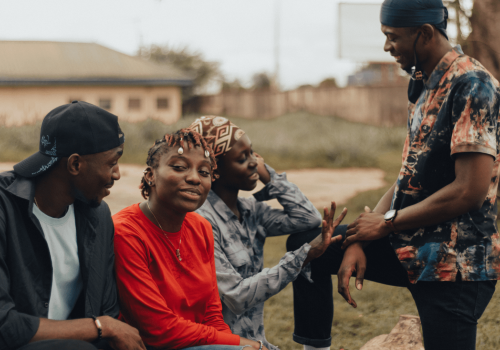Healthy or toxic love relationships?


First love relationships are very important events in the lives of teenagers. Discoveries, explorations, questioning, emotions, conflicts... This intense period is full of learning experiences.
As these are their first relationships, young people do not yet have the knowledge to distinguish between what is acceptable and what is not. Trusted adults, such as parents, can play an important role in supporting their teens to develop positive, egalitarian relationships.
Red flags
60% of young people have reported experiencing at least one form of violence in their romantic relationships.
Psychological and sexual abuse, whether they take place in person or virtually, require specific consideration as they are often misunderstood, subtle and trivialized. Knowing how it can manifest itself makes it easier to identify:
| Psychological and verbal abuse | Sexual abuse |
|
Monitor to whom and where their partner is communicating Controlling outings, clothing, eating, etc. Isolate them from their friends or family Manipulate, tell lies Giving the silent treatment Blackmailing or threatening (to leave, commit suicide, reveal intimate details, etc.). Laughing at one’s partner, ridiculing them in front of others Criticizing, denigrating, despising what the other person does, likes, wears, chooses, etc. |
Making or forcing the other person to perform an unwanted sexual act Use sexual blackmail ("if you really loved me, you'd want to...", "I'll leave you if you don't...", etc.) Putting pressure on their partner to have sex Sending nude photos without permission Forcing someone to watch or make pornographic videos Restricting their partner from using contraception or forcing them not to use any |
Psychological abuse stemming from feelings of jealousy is often interpreted by young people as proof of love. Although jealousy is a natural human emotion, dealing with it through controlling behaviors is still problematic.
Green flags
Healthy relationship characteristics are influenced by our values, needs, and priorities. They can change over time and are worth thinking about, defining, and discussing. Feeling safe and respected, trusting your partner, experiencing pleasure, being able to be authentic, communicating in a positive manner, and being free to be yourself are some examples.
Let's not forget that conflicts are human and constructive! For more information on disagreements, visit this site (in French): https://etincelles.uqam.ca/adultes-de-confiance/les-desaccords/
As parents, in your daily life...
- Spend quality time together to nurture a trusting relationship.
- Talk about the qualities of fulfilling, egalitarian relationships.
- Be a positive role model: embody the values and behaviors of a healthy relationship and normalize asking for help.
- Be authentic and name your discomfort or challenges when you feel them. Acknowledge your mistakes when you make them.
- Ask open, non-intrusive questions such as "What's new with ...? How was your evening?" Respect their pace and privacy.
- LISTEN: with curiosity, without judgment, or preconceived ideas.
- Question them to get them to think for themselves about their limits, needs, values, and options. "Do you feel good about the relationship? What do you like about it? Are there things you find difficult? What could you do next time to...?"
- Encourage your teen to listen to their internal signals, their feelings. An uncomfortable feeling is not synonymous with abuse, but it still deserves our attention.
- Counsel your teen on strategies for conflict resolution, positive communication, and emotional management.
- Let your teen make their own decisions.
- Remind your teen that you're there for them, thank them for trusting you.
And if you're worried...
- Offer up observations like "I've noticed that you don't see your friends anymore, that you often seem sad, that you don't do your favorite activity anymore...".
- Verbalize your concern.
- Remind them that abusive behavior is unacceptable, even if it comes from someone you love, and talk about the characteristics of a healthy relationship.
- If your teen confides in you that they're experiencing or committing abuse, be aware of your own feelings of stress or frustration. Avoid interrogating or blaming your teen.
- Above all, believe them and be supportive and reassuring going forward: "You're not alone, I'm here."
Références
UQÀM, Enquête sur les Parcours Amoureux des Jeunes (PAJ)
UQÀM, Programme Étincelles : pour des parcours amoureux et intimes positifs








